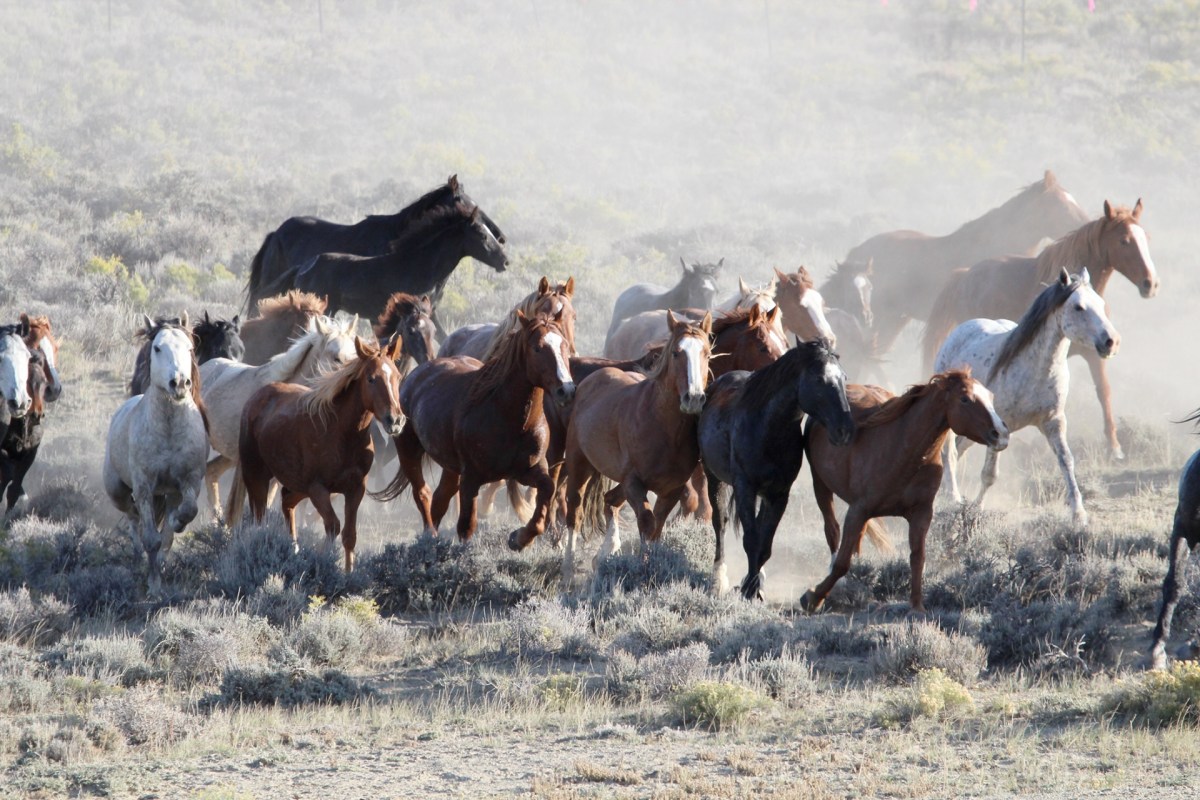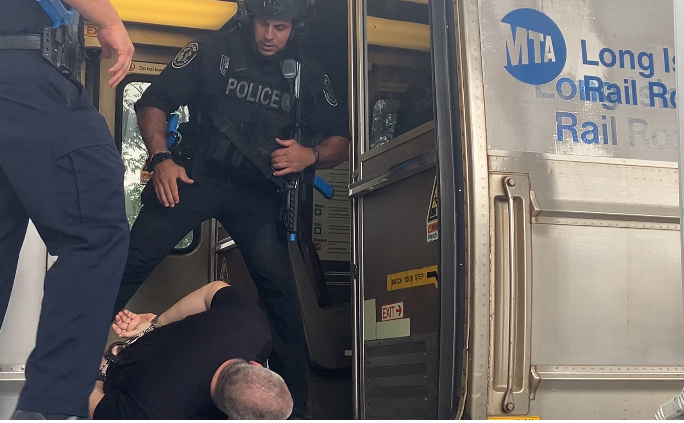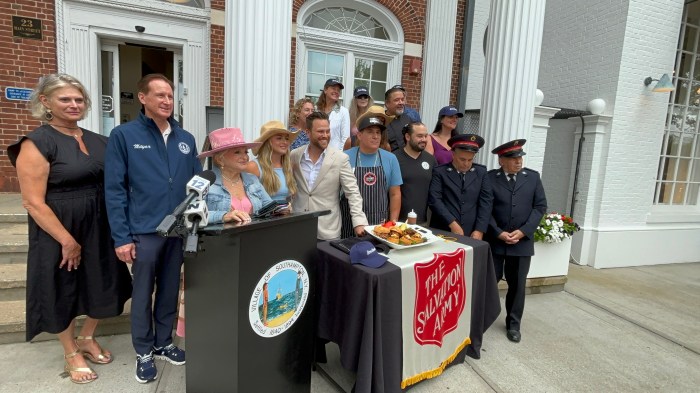Long Island-based animal advocates working to save troubled wild horses out West are optimistic now that a recently passed federal spending measure includes a provision for rewilding, or returning wild horses to nature.
That’s a major turnaround from two years ago, when federal officials were eyeing a plan to euthanize wild horses and burros, more than 50,000 of which have been rounded up and are being penned at government holding facilities, costing taxpayers a reported $50 million annually.
“Wild horse horses play a vital role in land conservation and the health of our habitats,” says Manda Kalimian, founder of the CANA Foundation, a Locust Valley-based nonprofit horse advocacy group that helps find homes for adopted wild horses and lobbied for the inclusion of the rewilding language in the federal budget. “Thousands case studies around the world prove wild horses have a unique ability to provide balance to the environment and to the human spirit. Through their presence, we can help to restore an ecological balance to our precious American ecosystems while benefiting the communities who welcome them.”
More than 70,000 wild horses and burros still roam public rangelands in 10 Western states, including California, Nevada, Arizona, Utah and Oregon, according to the latest federal data.
For nearly a half century, the 1971 Wild Free-Roaming Horses and Burros Act has mostly protected wild horses from being sold to slaughterhouses for use as horse meat in other countries. The U.S. Bureau of Land Management, which oversees 177 herd management areas, has been herding wild horses with helicopters, storing them in pens and putting them up for adoption for the past two decades, although the adoption demand hasn’t kept up with the horse supply.
But a ray of hope came when the U.S. House of Representatives Appropriations Committee this summer approved the budget measure that allows rewilding as a solution, as advocates like those with the CANA Foundation have been urging for years. Although the group is not happy that the budget earmarks $6 million for an experimental wild horse sterilization program that some have called inhumane, the nonprofit is pleased that the document is the first time the term rewilding has been used by the federal government.
“The committee recognizes the value of horse rewilding as one of many herd management strategies and encourages the Bureau to explore collaborations with suitable organizations and willing landowners to adopt, transport and locate horses to appropriate habitats at no cost to taxpayers,” the committee stated.
CANA sees the development as the first step in its goal to change the perception of wild horses in America. This legislation also opens the doors for CANA to present groundbreaking research and large-scale rewilding models that it is completing in time for a Rewilding Conference that CANA is supporting at the United Nations in April 2020.
“The present-day mismanagement of our horses is old and antiquated and has created an environmental, fiscal, and potential health crisis for the American people,” said former U.S. Rep. Steve Israel, who is CANA Foundation’s strategic advisor. “Rewilding is the way of the future, a multifaceted and nonpartisan solution that helps find a balance between wild horses, taxpayers and habitats.”
Related Story: Long Island Advocates Bridle Over Trump Plan to Euthanize Mustangs
HORSE SENSE AT HAMPTON CLASSIC
The CANA Foundation is hosting a two-day photography viewing with renowned endangered wildlife photographer Ejaz Khan at The Hampton Classic Horse Show at the end of August.
Khan will be available for a meet-and-greet and an unveiling of his latest work featuring the Nokota horse, a historic-yet-endangered indigenous breed of wild horse in America.
The viewing is scheduled for 12 p.m. to 1:30 p.m. Aug. 31 and 11 a.m. to 12:30 p.m. Sept. 1 at the Hampton Classic, which will be held at 240 Snake Hollow Road in Bridgehampton.
In addition CANA members will be present all week at the vendor space of its sister organization, the organic skincare wellness line Naturally Considerate that helps fund CANA, in the Boutique Garden at the horse show.



































